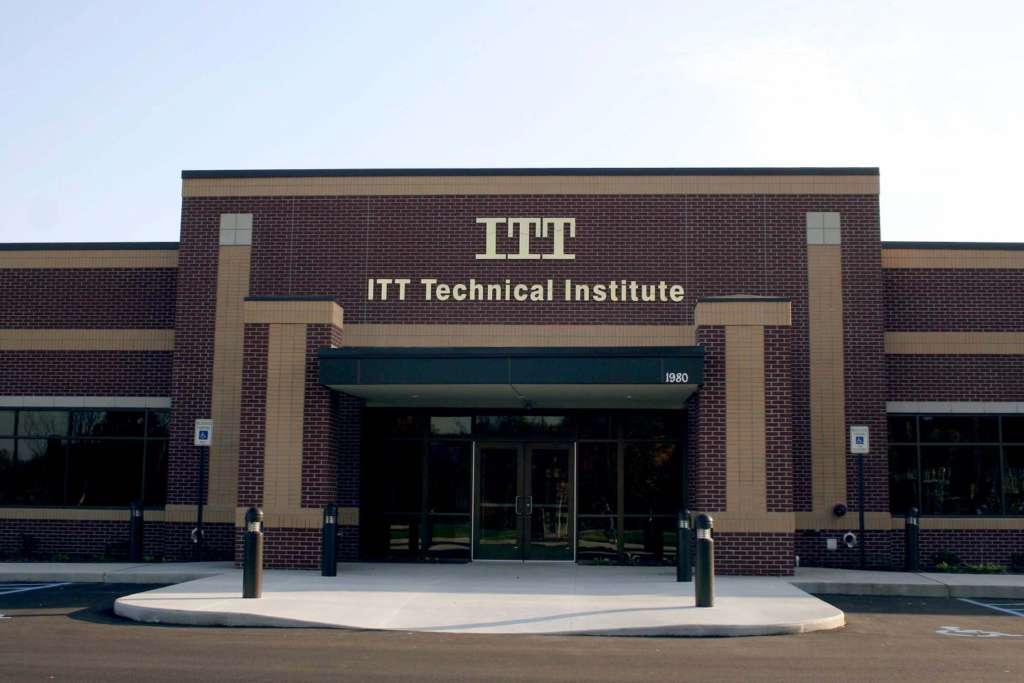April is not shaping up to be a good month for ITT Educational Services. Weeks after the for-profit chain was hit with a lawsuit for engaging in abusive sales tactics, it is now under the threat of having its accreditation revoked, a move that could effectively shut down its technical schools.
ITT officials revealed in a corporate filing Wednesday that the Accrediting Council for Independent Colleges and Schools, the gatekeeper between colleges and billions of dollars in federal financial aid, has asked the company to show “why its current grants of accreditation should not be withdrawn by suspension or otherwise conditioned.”
The accreditation agency is concerned that a string of state and federal investigations, lawsuits and regulatory actions against ITT “call into question the institutions’ administrative capacity, organizational integrity, financial viability and ability to serve students,” according to the filing. The council has asked the company to submit information to address various allegations ahead of the next accreditation meeting.
Receiving a so-called show cause letter is the first step in the process of reviewing a school’s performance, but it could be quickly accelerated if accreditors find evidence that warrants additional sanctions.
ITT spokeswoman Nicole Elam called the council’s action “unexpected and unfortunate,” but said the company is fully committed to responding to the request.
“We find it extremely disappointing that our accrediting body is asking for a public rehashing of allegations widely known to be heavily promoted by activists, unions and select politicians working in concert to undermine educational options for non-traditional students,” Elam said.
Earlier this month, Massachusetts Attorney General Maura Healey filed a lawsuit against ITT for allegedly pressuring people to enroll in programs of dubious quality.
Company employees are accused of telling prospective students at two campuses in Massachusetts that 80 to 100 percent of graduates found jobs in or related to their field of study, when the actual job placement rates were 50 percent or less and included graduates with internships, according to the complaint. To make matters worse, ITT allegedly counted jobs selling computers at big box stores and providing customer service for an airline as working in the field of computer technology.
Former recruiters told prosecutors they were expected to call up to 100 prospective students per day and were publicly shamed or fired if they failed to meet their quotas. According to the complaint, they allegedly persuaded students to visit a campus as soon as possible, where they were pressured to apply, take an admissions exam and complete a financial aid appointment the same day.
ITT has denied the charges, calling Healey’s investigation a “wide-ranging fishing expedition.” Still, the lawsuit is one of many headaches for one of the nation’s largest operators of for-profit technical schools.
The Department of Education placed additional restrictions on the company’s use of federal grants and loans in October, after ITT failed to account for millions of dollars in aid that was disbursed to students in the past five years. The company originally landed on the department’s watch list, known as “heightened cash monitoring,” a year ago for missing the deadline for filing financial statements. ITT is also fighting two separate lawsuits from the Consumer Financial Protection Bureau and the Securities and Exchange Commission.
In spite of the mounting problems at ITT, some question whether the council is only taking action against the company to silence criticism of its evaluation of for-profit institutions.
ACICS became infamous for claiming Corinthian Colleges, a for-profit chain that state and federal authorities accused of lying to students and committing fraud, was in good enough standing to continue to receive billions of dollars in taxpayer funds. The accreditor renewed two of the company’s campuses and authorized a new campus a few months before the Department of Education forced Corinthian to close or sell its 120 locations.
A dozen state attorneys general are calling on the department to strip ACICS of the power to grant access to federal funds, accusing the accreditor of poorly evaluating for-profit colleges, such as Corinthian, ITT Tech, Sanford Brown and the Art Institutes. In the shadow of their protest, the council
announced Monday the departure of its president and chief executive, Albert Gray, who tangled with Sen. Elizabeth Warren (D-Mass.) over the council’s handling of Corinthian.
Still, officials at the accreditation agency say they are not getting tougher in reaction to public pressure, and the decision to issue the letter to ITT proceeded Gray’s departure and the action by the attorneys general.
(The Washington Post)
